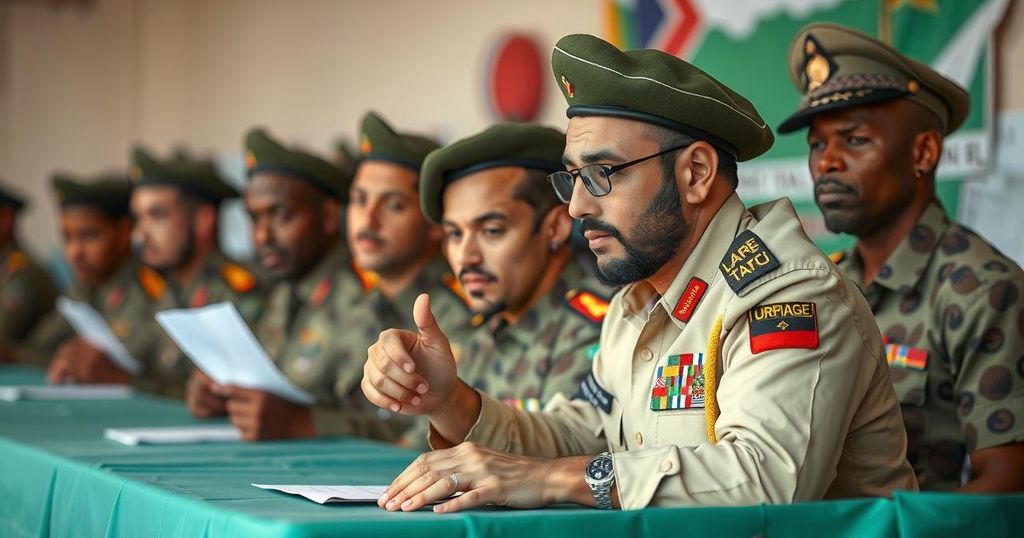Chad Votes in General Election After Three Years of Military Rule
Chad conducted a general election after three years of military rule, experiencing low voter turnout due to opposition boycott calls. Turnout was approximately 38 percent, and opposition leaders expressed skepticism about the election’s legitimacy. The elections are framed by the government as the final step towards democracy following military governance, amidst regional security challenges.
Chad held a general election on Sunday, following three years of military governance, amid expectations of low voter turnout largely influenced by opposition calls for a boycott. The provisional figures indicated a turnout of roughly 38 percent, indicating significant voter apathy, which election officials attributed to unusually cold weather. Opposition leader Succes Masra stated that the public largely heeded the boycott, thus facilitating the victory of candidates loyal to President Mahamat Idriss Deby Itno, who assumed power after military intervention in 2021.
Several citizens expressed disillusionment with the electoral process, with some, like construction worker Herve Natouingan, deeming it “pointless” due to perceived lack of genuine democracy in Chad. On the other hand, Patrice Lumumba Deoumoundou articulated his desire for reform and change within the country. Soldiers, police, and nomadic populations cast their votes a day prior to civilian voting for logistical reasons, with reported high participation rates among these groups.
The polls remain overseen by foreign observers and representatives from various political parties, amid claims from the opposition regarding ballot discrepancies and voting fraud. These elections are framed by the government as a pivotal step towards restoring democratic governance after a prolonged period of autocratic military rule, and they take place amidst ongoing regional instability and security challenges.
Chad has experienced a turbulent political landscape characterized by military rule following the death of long-time leader Idriss Deby in 2021. Military governance has been met with resistance from opposition parties, which have labeled subsequent elections as pre-determined. The current general election is contested against a backdrop of calls for democracy and transparency. This election is said to mark the concluding phase of Chad’s transition from military rule, influenced by regional security issues, including threats from Boko Haram and complications related to its relationship with former colonial power France.
In conclusion, the recent general election in Chad represents a critical juncture in the country’s political evolution, marked by widespread voter apathy, especially against the backdrop of opposition-led boycotts. While the government projects an image of legitimacy through these elections, significant doubts remain among the populace regarding the authenticity of the process and the ongoing influence of military power in governance. The future of Chad hinges on how these elections will shape its path towards true democratic governance amidst persistent challenges.
Original Source: www.kpvi.com




Post Comment